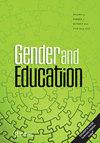关于性别暴力的教学,包括和促进性别正义:认识论、教学和伦理困境
IF 1.9
3区 教育学
Q2 EDUCATION & EDUCATIONAL RESEARCH
引用次数: 0
摘要
本文反思了研究生学位的教学,旨在支持学生理解和挑战性别暴力,为性别正义做出贡献。它探讨了三个困境:(i)认识论——如何创建一个包含不同知识和不同视角的课程,从而产生暴力;(ii)教学——如何创造一个产生跨部门性别公正的学习空间;(iii)伦理——如何在不传播进一步伤害的情况下应对他人和自己遭受的暴力。在探索作者如何应对这些困境时,本文认为,教授该学位不仅仅需要培养学生的理论知识和批判性分析技能。它需要为学生提供为学位做出贡献的机会,并支持他们培养自我反思、移情沟通和集体见证的技能。这意味着为学生留出空间,让他们在不稳定的时刻工作,处理自己遭遇的性别不公正和暴力。本文章由计算机程序翻译,如有差异,请以英文原文为准。
Teaching about gender violence, with and for gender justice: epistemological, pedagogical and ethical dilemmas
ABSTRACT This paper reflects on teaching a postgraduate degree which aims to support students to understand and challenge gender violence and contribute to gender justice. It explores three dilemmas: (i) epistemological – how to create a curriculum which embraces diverse knowledges and decentres perspectives which can produce violence; (ii) pedagogical – how to create a learning space which generates intersectional gender justice; (iii) ethical – how to engage with violence suffered by others – and selves – without propagating further harm. Exploring how the author navigates these dilemmas, the paper argues that teaching this degree entails more than developing students’ theoretical knowledge and critical analysis skills. It requires providing opportunities for students to contribute to the degree and supporting them to build skills in self-reflection, empathetic communication and collective witnessing. It means making space for students to work through precarious moments and process their own encounters with gender injustice and violence.
求助全文
通过发布文献求助,成功后即可免费获取论文全文。
去求助
来源期刊

Gender and Education
EDUCATION & EDUCATIONAL RESEARCH-
CiteScore
5.20
自引率
9.10%
发文量
31
期刊介绍:
Gender and Education grew out of feminist politics and a social justice agenda and is committed to developing multi-disciplinary and critical discussions of gender and education. The journal is particularly interested in the place of gender in relation to other key differences and seeks to further feminist knowledge, philosophies, theory, action and debate. The Editors are actively committed to making the journal an interactive platform that includes global perspectives on education, gender and culture. Submissions to the journal should examine and theorize the interrelated experiences of gendered subjects including women, girls, men, boys, and gender-diverse individuals. Papers should consider how gender shapes and is shaped by other social, cultural, discursive, affective and material dimensions of difference. Gender and Education expects articles to engage in feminist debate, to draw upon a range of theoretical frameworks and to go beyond simple descriptions. Education is interpreted in a broad sense to cover both formal and informal aspects, including pre-school, primary, and secondary education; families and youth cultures inside and outside schools; adult, community, further and higher education; vocational education and training; media education; and parental education.
 求助内容:
求助内容: 应助结果提醒方式:
应助结果提醒方式:


